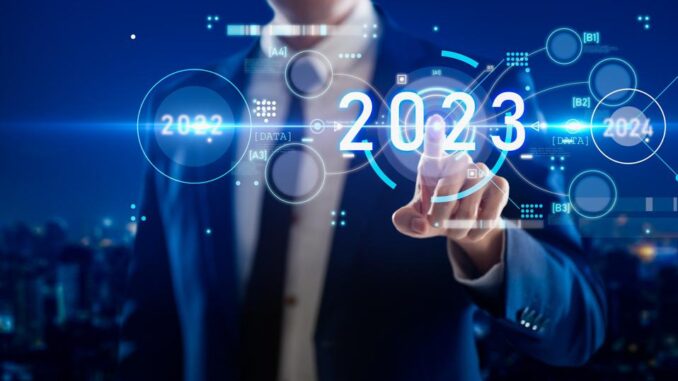
Table of Contents
The Technological Trends That Will Change the World
The simultaneous convergence and interaction of numerous technological trends are what distinguishes the fourth industrial revolution from earlier ones. In this essay, I outline the top technological developments that, in my opinion, will fundamentally change how we do business and live our lives and are fueling the fourth industrial revolution.
Pervasive computing
These days, we can find computers everywhere: in our cars, on our wrists, in our household appliances, and even in our pockets. We swiftly adapted to computers and other technology becoming smaller, lighter, cheaper, more powerful, and more commonplace as processing power improved and computer microchip size decreased. (For instance, a typical smartphone now has more computing capability than a supercomputer did ten years ago.) Going ahead, quantum computers will likely represent the next significant advance in computing power. These machines are so quick and potent that they could be utilized to finish new, previously unachievable jobs that conventional computers can’t do.
Everything is connected and smart.
You’ve probably heard of the Internet of Things (IoT) thanks to gadgets like smart Televisions, smartwatches, and thermostats. The term “Internet of Things” (IoT) describes the rising number of intelligent, connected, and items that can collect and transfer data. Anything that can be connected in the future will be connected. Not just in terms of tools and goods, although that is undoubtedly a crucial factor for companies, but also in terms of the places where we live and work. The environments around us will increasingly be capable of monitoring what’s happening and taking appropriate action, from networked, smart factories and offices to entire smart cities.
Our world is becoming more data-driven
The IoT and ubiquitous computing both make significant contributions to the daily generation of vast amounts of data. Yet in addition to this artificially generated data, we humans are also producing enormous amounts of data as a result of our daily activities, and this is not slowing down. The good news is that firms can utilize this data to build better goods and services, boost decision-making, and even develop new streams of revenue. But, organizations must also be conscious of the dangers posed by data, particularly regarding data privacy and security, and take appropriate action.
Machine learning (AI)
The massive amount of data being produced is a key enabler for AI, which has advanced dramatically in recent years, especially in the area of “conversational AI.” AI-enabled smart speakers to respond to 100 billion voice commands in 2020 alone, which is a 75 percent increase over 2019. The lesson for businesses is that as machine interactions become more sophisticated, people will demand that all kinds of goods and services include AI functionality.
Expanded Reality(XR)
The word “XR” serves as a catch-all for the full range of immersive technologies, including virtual reality, augmented reality, and mixed reality.XR was first best known for immersive gaming, but it is now being employed in a variety of businesses to provide more immersive, customized experiences for both customers and employees. Customers can now virtually test out things, for instance, placing a new sofa in their living room to see how it looks, and staff may learn in new, engaging ways. I think that as time goes on, we’ll be seeing the world more and more in this hazy zone between the physical and digital worlds, and XR will further hasten this change. So, businesses need to start thinking about how they will adapt to this and provide immersive experiences for both their clients and staff.
Online confidence
Users’ trust in enterprises to create a secure digital environment in which interactions and transactions may be carried out simply, safely, and securely is fundamentally what is meant by “digital trust.”Many people, including me, think that distributed ledger technology like blockchain will be crucial to increasing digital trust and securing interactions. Despite this, there is still a way to go before the technology is fully available to all kinds of enterprises. The solution may be found by several companies collaborating with the numerous fresh thinkers and doers who are making significant progress in the blockchain industry.
3D printing
Almost anything may now be utilized to create 3D objects, including plastic, metal, powder, concrete, liquid, and even chocolate. Houses may now be printed in 3D. This might revolutionize the manufacturing industry. In summary, 3D printing enables producers to generate items that are challenging to produce using conventional techniques, simplify the production process, and produce highly customized goods (including one-of-a-kind products), all while lowering waste and costs.

Leave a Reply